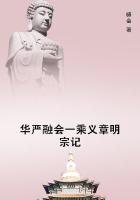"I can forgive her," said Grace, absently. "Did Edgar tell you of this?"
"No; but he put a London newspaper, giving an account of it, on the hall table, folded in such a way that we should see it. It will be in the Sherton paper this week, no doubt. To make the event more solemn still to him, he had just before had sharp words with her, and left her. He told Lucy this, as nothing about him appears in the newspaper. And the cause of the quarrel was, of all people, she we've left behind us."
"Do you mean Marty?" Grace spoke the words but perfunctorily.
For, pertinent and pointed as Melbury's story was, she had no heart for it now.
"Yes. Marty South." Melbury persisted in his narrative, to divert her from her present grief, if possible. "Before he went away she wrote him a letter, which he kept in his, pocket a long while before reading. He chanced to pull it out in Mrs.
Charmond's, presence, and read it out loud. It contained something which teased her very much, and that led to the rupture.
She was following him to make it up when she met with her terrible death."
Melbury did not know enough to give the gist of the incident, which was that Marty South's letter had been concerning a certain personal adornment common to herself and Mrs. Charmond. Her bullet reached its billet at last. The scene between Fitzpiers and Felice had been sharp, as only a scene can be which arises out of the mortification of one woman by another in the presence of a lover. True, Marty had not effected it by word of mouth; the charge about the locks of hair was made simply by Fitzpiers reading her letter to him aloud to Felice in the playfully ironical tones of one who had become a little weary of his situation, and was finding his friend, in the phrase of George Herbert, a "flat delight." He had stroked those false tresses with his hand many a time without knowing them to be transplanted, and it was impossible when the discovery was so abruptly made to avoid being finely satirical, despite her generous disposition.
That was how it had begun, and tragedy had been its end. On his abrupt departure she had followed him to the station but the train was gone; and in travelling to Baden in search of him she had met his rival, whose reproaches led to an altercation, and the death of both. Of that precipitate scene of passion and crime Fitzpiers had known nothing till he saw an account of it in the papers, where, fortunately for himself, no mention was made of his prior acquaintance with the unhappy lady; nor was there any allusion to him in the subsequent inquiry, the double death being attributed to some gambling losses, though, in point of fact, neither one of them had visited the tables.
Melbury and his daughter drew near their house, having seen but one living thing on their way, a squirrel, which did not run up its tree, but, dropping the sweet chestnut which it carried, cried chut-chut-chut, and stamped with its hind legs on the ground.
When the roofs and chimneys of the homestead began to emerge from the screen of boughs, Grace started, and checked herself in her abstracted advance.
"You clearly understand," she said to her step-mother some of her old misgiving returning, "that I am coming back only on condition of his leaving as he promised? Will you let him know this, that there may be no mistake?"
Mrs. Melbury, who had some long private talks with Fitzpiers, assured Grace that she need have no doubts on that point, and that he would probably be gone by the evening. Grace then entered with them into Melbury's wing of the house, and sat down listlessly in the parlor, while her step-mother went to Fitzpiers.
The prompt obedience to her wishes which the surgeon showed did honor to him, if anything could. Before Mrs. Melbury had returned to the room Grace, who was sitting on the parlor window-bench, saw her husband go from the door under the increasing light of morning, with a bag in his hand. While passing through the gate he turned his head. The firelight of the room she sat in threw her figure into dark relief against the window as she looked through the panes, and he must have seen her distinctly. In a moment he went on, the gate fell to, and he disappeared. At the hut she had declared that another had displaced him; and now she had banished him.















